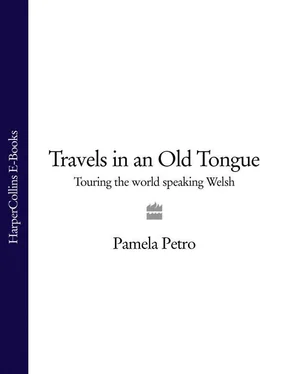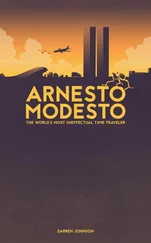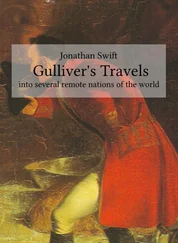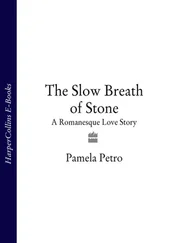PAMELA PETRO
Travels in an Old Tongue
Touring the World Speaking Welsh

COPYRIGHT COPYRIGHT DEDICATION PROLOGUE PART ONE: Ewrob (Europe) INTERLUDE PART TWO: Asia (Asia) INTERLUDE II PART THREE: De Amerig (South America) EPILOGUE KEEP READING ACKNOWLEDGMENTS ABOUT THE AUTHOR PRAISE ABOUT THE PUBLISHER
Willam Collins
An imprint of HarperCollins Publishers 1 London Bridge Street London SE1 9GF www.harpercollins.co.uk
Published by Flamingo 1998
First published in Great Britain by
HarperCollins Publishers 1997
Copyright © Pamela Petro 1997
Pamela Petro asserts the moral right to
be identified as the author of this work
The author and publishers of this work would like to express their gratitude to the following:
David Higham Associates for permission to quote ‘The Sunset Song’ from Under Milk Wood by Dylan Thomas; Gwydion Thomas for permission to quote R. S. Thomas’ poem ‘Something’; J. M. Dent & Sons for permission to quote ‘The Small Window’ and ‘Welsh’ from Collected Poems 1945–1990 by R. S. Thomas; and Gwasg Gomer for permission to quote T. H. Parry-Williams’ poem ‘Hon’ from Poetry of Wales 1930–1970; Meic Stephens for permission to quote Harri Webb’s poem ‘Ode to The Severn Bridge’.
All rights reserved under International and Pan-American Copyright Conventions. By payment of the required fees, you have been granted the nonexclusive, nontransferable right to access and read the text of this e-book on-screen. No part of this text may be reproduced, transmitted, downloaded, decompiled, reverse engineered, or stored in or introduced into any information storage and retrieval system, in any form or by any means, whether electronic or mechanical, now known or hereinafter invented, without the express written permission of HarperCollins e-books.
HarperCollins Publishers has made every reasonable effort to ensure that any picture content and written content in this ebook has been included or removed in accordance with the contractual and technological constraints in operation at the time of publication.
Source ISBN: 9780006550105
Ebook Edition © FEBRUARY 2016 ISBN: 9780007393299
Version: 2016-01-12
DEDICATION DEDICATION PROLOGUE PART ONE: Ewrob (Europe) INTERLUDE PART TWO: Asia (Asia) INTERLUDE II PART THREE: De Amerig (South America) EPILOGUE KEEP READING ACKNOWLEDGMENTS ABOUT THE AUTHOR PRAISE ABOUT THE PUBLISHER
For my parents,Patricia and Stephen Petro
COVER
TITLE PAGE PAMELA PETRO Travels in an Old Tongue Touring the World Speaking Welsh
COPYRIGHT
DEDICATION
PROLOGUE
PART ONE: Ewrob (Europe)
INTERLUDE
PART TWO: Asia (Asia)
INTERLUDE II
PART THREE: De Amerig (South America)
EPILOGUE
KEEP READING
ACKNOWLEDGMENTS
ABOUT THE AUTHOR
PRAISE
ABOUT THE PUBLISHER
Something to bring back to show
you have been there: a lock of God’s
hair, stolen from him while he was
asleep; a photograph of the garden
of the spirit. As has been said,
the point of travelling is not
to arrive, but to return home
laden with pollen you shall work up
into the honey the mind feeds on.
R. S. THOMAS
‘Somewhere’
‘ Pam , Pam?’
It could be irony or it could be destiny, but either way my name means Why? in Welsh. My full name, Pamela, smacks of tea and foxhounds.
There’s an episode of I Love Lucy in which Lucy dresses up in riding gear and fakes an English accent to impress Ricky’s friends. Her assumed name, of course, is Pamela. PAHM-ula , that is, sprung from the mouth with the velocity of a ping-pong ball shot from a toy gun. Now hear a Welsh person speak my name, and the tidy hierarchy of syllables goes right out the window. There’s an anarchic pulse to PAM-eL-A that I like much better. My name becomes a quick trip over the hills on a sled in winter. It’s a less efficient way of calling me, but imagine what that extra syllabic beat does for the musculature of the tongue.
The most efficient way to get my attention is to shout ‘Pam!’, which is what I’ve answered to for most of my thirty-five years, but which over the past decade or so has become that nagging ‘Why?’ question as well. ‘Why are you doing this?’ I wondered to myself in 1983, when I turned down a job in Washington, DC to go to the smallest university in Britain – the University of Wales, Lampeter – to get a master’s degree in something called ‘The Word and the Visual Imagination’.
‘Just why did you say you’re doing this?’ my friends wanted to know in 1987, when after two years back in the States I enrolled in a Welsh language class at Harvard.
‘But why are you doing this, Pam? Why do you need to spend a summer working on your Welsh ?’ my family asked in 1992, in a tone of supportive desperation that they’ve become very good at, when I returned to Lampeter to spend two months in a seven-days-a-week intensive Welsh language class in a Portakabin, on the hockey pitch, in the rain.
I don’t know. Maybe when I first went to Wales and unwittingly enrolled in an English department, the old Welsh god of Irony vowed to teach me a lesson and made me besotted with the place and its language (I made up the god of Irony, but there really is an old Celtic god of Panic, who comes in handy in cases of both travel and language study). To tell the truth, I really can’t say why my desire to continue learning Welsh got so out of hand that I chose to pursue it on a five-month, fourteen-country crusade around the world. Perhaps I had a premonition of what Ursula Imadegawa would tell me in Tokyo. ‘Pam,’ she said, leaning against her kitchen counter about to hand me a glass of Johnnie Walker Black with pink and purple plastic ice cubes floating in it, ‘you only regret what you don’t do.’
I suppose the rejoinder to Ursula’s wisdom is that I haven’t flown a jet or pierced my eyebrows or gotten married yet, and I’m not racing off to do any of those things for fear of potential regret. So it’s ‘ Pam , Pam?’ again: Why travel around the world when I could just as easily – and for a great deal less money – go back to Wales to study Welsh?
There are two answers to this question. One is, simply, that I like to travel and make up shameless excuses to do so. The other is that learning Welsh is like digging a hole in the sand. You make a dent at first, but as you bore deeper you encounter a frustrating snag of nature called the angle of repose; you can only dig so far before new sand spills in from the top, eternally preventing your hole from getting any bigger. All you wind up with is grit under your fingernails. It’s the same with me and Welsh: whenever I try to practise Welsh in Wales I get only so far before English comes spilling in from all sides.
The fact of the matter is that the principality of Wales is buried beneath the verbal tonnage of English. Of Wales’s nearly three million inhabitants – compared to around five million apiece for Ireland and Scotland, and 48 million for England – only about 18 per cent, or some 540,000 people, speak Welsh. And these folks are fluent in English as well. Now imagine waiting your turn at a post office in rural Wales. Behind you is a line that winds out the front door, peopled with old men in tweed jackets and ties, leaning heavily on identical canes and making preliminary retching sounds in their gullets; redolent farmers with manure-caked Wellingtons; a mother with three uncontrollable children; and at least one old woman struggling beneath the weight of a heavy shipping box. Your turn comes and you approach the window. The clerk raises his eyebrows in efficient expectation of your request. Do you say: ‘Um, bore da. ’ Clear your throat. ‘Um, gaf fi , no, um, gai , uh, bruny stamp , um, os gwellwch chi’n dda? ’ Or do you say, ‘Good morning. May I have a stamp please?’
Читать дальше













